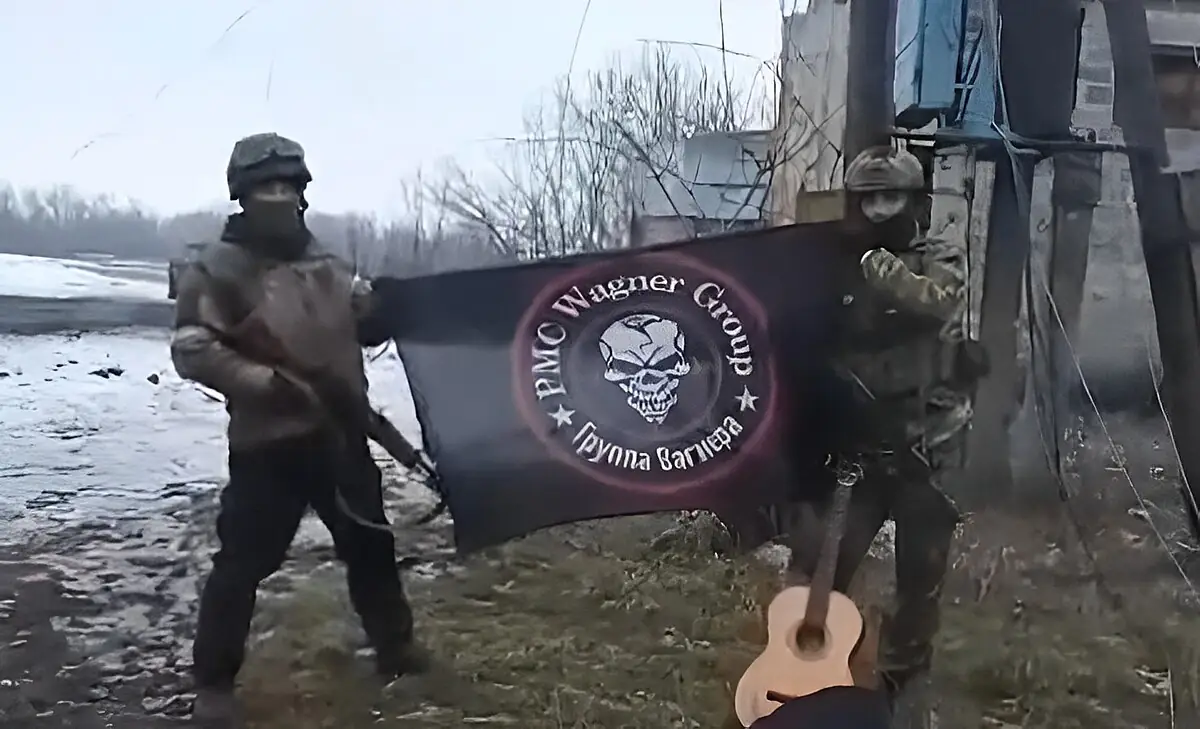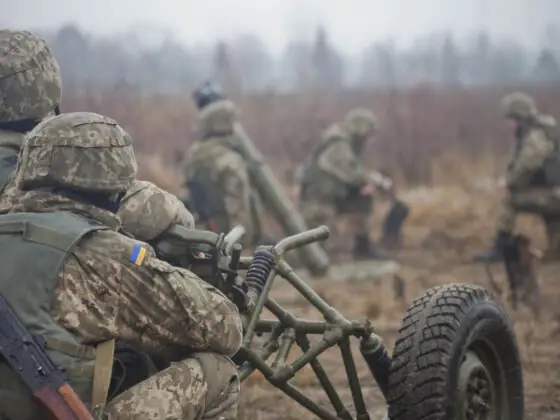Image credit/license
Autocracies constantly face the challenge of balancing loyalty and effectiveness, and Russia and its military are no exception. The demise of the Wagner Group and Yevgeny Prigozhin following the 2023 mutiny highlights the risks of empowering ambitious outside actors to address bureaucratic inefficiencies. Nonetheless, other private military companies (PMCs), along with a reformed Wagner, are already stepping into the void, carrying out covert operations, engaging in political influence and disinformation campaigns, and providing security for authoritarian leaders across Eurasia, while supporting a variety of pro-Russian political forces. Crucially, the Kremlin has learned from its mistakes, placing these groups under tighter control to ensure loyalty and delegating Wagner’s duties to entities like the National Guard (Rosgvardiya), Chechen Akhmat special forces, and the Main Intelligence Directorate (GRU).
In this memo, we examine the conditions that led to the rise of paramilitary groups in Russia like Wagner, which emerged as a rare “pocket of effectiveness” within Putin’s regime, notorious for bureaucratic ineffectiveness and corruption. However, Wagner’s success ultimately posed an existential political threat to the regime, which has underlined the dangers of allowing too much autonomy. In our assessment, Wagner’s role as the Kremlin’s key tool for covert operations cannot be replicated following the elimination of Prigozhin, because the flip side of Wagner’s effectiveness—disloyalty—proved to be the gravest offense in Putin’s system. We argue that post-Prigozhin PMCs are unlikely to be as potent as the Wagner Group; on the other hand, these new PMCs will hardly become breeding grounds for disloyalty and patriotic unrest. Indeed, Prigozhin’s mutiny was not merely a glitch in the system; it rather manifested structural risks in the Russian regime. His PMC, combined with his personal assets, autonomy, and lack of direct oversight by the Ministry of Defense (MoD), made him a successful “violent entrepreneur.” The political risks of such success have been made clear, and Putin will no longer abide them.
PMCs as ‘Pockets of Effectiveness’ amid Ineffective Bureaucracies, Limited Resources
The concept of “pockets of effectiveness” has been put forward by political scientist Barbara Geddes in the context of governance and public goods provision in Latin America. Pockets of effectiveness entail bureaucratic autonomy and drive expected or actual effectiveness compared to other government structures[1]. In Geddes’ analysis, certain segments of the bureaucracy manage to function effectively, despite the overarching constraints of the political and economic environment, thanks to autonomy, political patronage, institutional setups (i.e., clear mechanisms of accountability and goals), sound leadership, a culture of professional excellence, and the allocation of sufficient resources[2].
Most autocracies, however, struggle to get all these factors right, owing to the intrinsic dilemma politicians and especially autocrats face: Ensuring their immediate political survival versus pursuing longer-term interests like economic performance and regime stability. In Russian politics and governance, as political scientist Vladimir Gel’man[3] suggests, isolated success stories with higher “returns” have often unfolded at the expense of other less effective (and efficient) realms. Pockets of effectiveness in the Russian context are state-directed development projects or programs that stand out amid, and without changing, the general trend of poor governance. The Russian political elites enjoy the material and symbolic benefits that that are generated by them.
The Russian military is no exception in this regard. Its lack of modernization has been an open secret: a 2020 report by the U.S. Congressional Research Service highlighted the need for various reforms in the Russian military, focusing on aspects like modernization, readiness, and coordination. Nonetheless, Russia’s military performance in Ukraine has been underwhelming, falling short of some expectations that it had enhanced its capabilities. Its prioritization of advanced technology, such as hypersonic missiles and nuclear platforms, over fundamental military aspects like training and logistics has translated into major shortcomings on the battlefield.
The Russian military’s structure and strategy have not only stalled reforms but also exposed deeper, systemic issues within the military establishment. This has resulted in a reliance on outdated tactics, severely undermined operational capabilities, and an inability to effectively project power, which is further compounded by corruption, principally through the misappropriation of funds earmarked for the army. Investigations by Alexei Navalny’s team have revealed the lavish lifestyles of senior defense officials, including hidden properties and assets belonging to figures such as ex-Minister of Defense Sergei Shoigu. The widespread embezzlement, affecting all levels of the military, has contributed to a lack of essential supplies and inadequate logistics. For example, over the past eight years, Russian military courts have disclosed over 12,000 cases of corruption, involving the theft of military gear and equipment, with some instances occurring even after the Russian invasion of Ukraine.
In this sense, PMCs present an opportunity to overcome the bureaucratic limitations of the state and “innovate” with limited resources. Meanwhile, the ambiguous legal status of such organizations allowed the Kremlin, up until Prigozhin’s mutiny, to distance itself from PMC actions and, to an extent, deflect responsibility. In a similar vein, political scientists Åse Gilje Østensen and Bukkvoll[4] go so far as to argue that PMCs have become low-cost tools to restore Russia’s status as a great power. In other words, the Kremlin can use PMCs to pursue its great-power ambitions, maintaining a global footprint and influencing conflicts abroad while reducing financial and political risks. What made the Wagner Group such a “success story,” and what limitations do PMCs face in forcing effectiveness amid a low-quality bureaucracy and a lack of competence and resources?
Prigozhin’s Rise and Fall as a ‘Violent Entrepreneur’ in Putin’s System
In the early 2000s, Putin concentrated Russia’s economic resources by creating two types of oligarchs. The first group, comprising those who were wealthy and autonomous in the 1990s (e.g., Oleg Deripaska and Boris Berezovsky), had to submit to Putin, go into exile, or face imprisonment. The second group consisted of Putin’s loyal Leningrad-era friends (e.g., Igor Sechin and Gennady Timchenko), who were rewarded with wealth and power for their loyalty. Prigozhin, unlike other oligarchs, gained his wealth through criminal connections in the 1990s restaurant and catering business, eventually supplying food to the Kremlin. This allowed him to build strong ties inside the government, especially the MoD. He eventually expanded into fake media and private military operations, thus fulfilling unofficial needs of the Putin regime, such as trolling opponents, influencing foreign elections, and conducting covert military actions.
Prigozhin managed to skillfully navigate an authoritarian system built on risk-averse loyalty[5], finding a niche as an informal actor who could compensate for the ineffectiveness of official actors. At first, his services were not needed for the full-scale war in Ukraine. However, given the Russian military’s poor performance in the war, mounting casualties, and manpower shortages, an opportunity arose for him, leading to consequences that Putin did not understand or control. Whereas the official military leadership, obliged by loyalty, has remained faithful to the official narrative surrounding the “special military operation,” Prigozhin turned his direct, coarse style to his advantage by publicly commenting on Russia’s problems in the war.
Prigozhin’s understanding of social media, as well as the jingoistic mood pervading it, proved to be an asset. For example, he heavily used the messaging service Telegram, which has exploded in popularity since the invasion at the expense of the Kremlin’s television propaganda. His outspokenness was given added credibility by growing frustration in militarist circles with the Kremlin’s lies about the progress of the operation. While officials were attempting to create a narrative of success, the situation at the front was becoming critical, which earned Prigozhin respect as a truth-teller.
It remains unclear how much Putin knew about Prigozhin’s criticism of the MoD before the mutiny. The political system in Russia creates few incentives for discussing issues honestly, so Putin’s understanding was likely incomplete. He probably believed Prigozhin would ultimately submit the Wagner Group to MoD control, expecting that Prigozhin’s bad reputation would limit his influence. Indeed, the system’s flaws, such as discouraging initiative and promoting inaction, were exposed by the mutiny. Yet eliminating an autonomous actor like Prigozhin does not fix these structural weaknesses—it merely shifts them elsewhere.
Redut and Convoy: Post-Prigozhin Attempts at Creating Loyal but Effective PMCs
Prigozhin, unlike typical state actors, built his influence through accumulated material assets rather than institutional ties. After his death, the Wagner Group was reorganized, replaced by two PMCs, Redut and Convoy, that take orders from the MoD. Prigozhin’s financial function is now managed by security services linked to oligarchs close to Putin, while operational control has shifted to the MoD and the GRU.
The new structure seeks to minimize the risk of disloyalty. Notably, Deputy Defense Minister Yunus-Bek Yevkurov and GRU General Andrei Averyanov, both loyal to Putin, are now in charge. Yevkurov’s background as a negotiator and stabilizer, as well as Averyanov’s role in covert operations, underscores the Kremlin’s preference for loyalty over autonomy. The heads of Convoy and Redut, Konstantin Pikalov and Konstantin Mirzayanats, respectively, also reflect this shift: their roles align with the Kremlin’s strategy to control military actors and prevent autonomous operations.
Meanwhile, the Kremlin has allowed regional governors to create their own armies, attempting to expand the practice of pockets of effectiveness in the Ukraine war while mitigating the risks that materialized in Prigozhin’s case. Although these units have extensive authority, they are formally subordinated to Rosgvardiya, which highlights the pains taken by the Kremlin to maintain control and reduce the threat from autonomous actors.
Keeping ‘Pockets of Effectiveness’ to Project Power Globally, but with Greater Control
Autocracies such as Russia constantly grapple with the challenge of balancing political loyalty and bureaucratic effectiveness, a dilemma that extends to their militaries. For a time, the Wagner Group served as a highly effective tool for the Kremlin to carry out covert operations. Yet its operational successes as a pocket of effectiveness eventually came to pose a political threat because of the perceived disloyalty of an emboldened Prigozhin. The mutiny in 2023, spurred by criticisms of and dissatisfaction with an ineffective bureaucracy, highlighted the dangers of autonomous military actors within an autocratic system and the delicate balance autocrats must maintain.
Despite efforts at modernization, the Russian military suffers from deep-seated inefficiencies, corruption, and outdated tactics, as starkly revealed by its underperformance in the Ukraine conflict. These systemic issues have necessitated reliance on PMCs like Wagner to overcome the bureaucratic constraints. Private military companies have been used as a cost-effective means to project Russian power globally while minimizing political and financial risks. Their ambiguous legal status once allowed the Kremlin to distance itself from their actions, although that is changing post-mutiny. Following Prigozhin’s death, the Kremlin has restructured Wagner’s operations to prioritize loyalty over autonomy, with control shifting to entities like Rosgvardiya, Chechen special forces, and the GRU.
The emergence of Redut and Convoy as the leading PMCs, now operating under strict MoD supervision, shows that the Russian authorities have learned from their mistakes and focused their strategy on maintaining control and preventing the rise of independent military actors. The Kremlin has also empowered regional governors to form their own militias, aiming to create additional loyal pockets of effectiveness.
[1] Barbara Geddes, Politician’s Dilemma: Building State Capacity in Latin America, University of California Press, Berkeley, CA, 1994. Barbara Geddes, Politician’s Dilemma: Building State Capacity in Latin America, University of California Press, Berkeley, CA, 1994.
[2] Ibidem.
[3] Vladimir Gel’man, “Exceptions and Rules: Success Stories and Bad Governance in Russia,” Europe-Asia Studies 73(6), 2021, pp. 1080-1101.
[4] Tor Bukkvoll and Åse Gilje Østensen, “The Emergence of Russian Private Military Companies: A New Tool of Clandestine Warfare,” Special Operations Journal 6(1), 2020, pp. 1-17.
[5] Guzel Garifullina, “Ambition Without Democracy: When the Cautious Seek Office,” Democratization, 2024, pp. 1-25.
Margarita Zavadskaya is a senior research fellow at the Finnish Institute of International Affairs.
Jussi Lassila is a senior research fellow at the Finnish Institute of International Affairs.
Image credit/license











